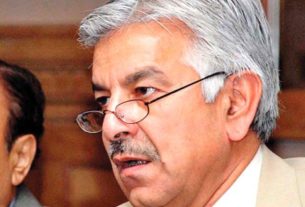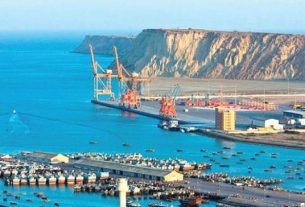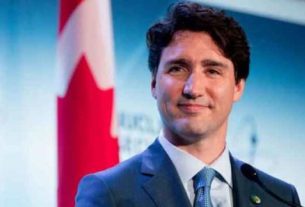London — The European Parliament overwhelmingly passed an emergency resolution Thursday condemning the Chinese government’s persecution of Uyghurs and urging China to immediately and unconditionally release detainees, including Uyghur economist Ilham Tohti and Gulshan Abbas.
The resolution is fueled by widespread concern from the international community and highlights its continued concern about the human rights situation in Xinjiang.
The resolution, which was adopted by a vote of 540 in favor, 23 against and 47 abstentions, strongly condemns China’s “repression and targeting of Uyghurs with abusive policies, including intense surveillance, forced labor, sterilization, birth prevention measures and the destruction of Uyghur identity, which amount to crimes against humanity and a serious risk of genocide.”
The European Parliament’s resolution pays attention to the cases of two high-profile Uyghurs. Ilham Tohti, a 54-year-old economist, was sentenced to life in prison in 2014 on charges of “separatism.” Tohti has long worked to promote dialogue between Uyghurs and the Han Chinese and is considered a moderate intellectual. In 2019, the European Parliament awarded him the Sakharov Prize for Freedom of Thought for his efforts to uphold human rights.
Gulshan Abbas, a 62-year-old retired doctor, was detained in 2018 and sentenced to 20 years in prison on terrorism-related charges. Abbas’s sister, Rushan Abbas, is a Uyghur human rights activist in the United States.
Ziba Murat, daughter of Gulshan Abbas, told the nonprofit group International Services for Human Rights, “My mother was a medical professional who dedicated her life to helping others and saving lives. She is a non-politicized, warm-hearted and loving mother. The accusations against her are absurd and baseless. My mother is suffering only because her family in the United States has spoken out against the Chinese government’s unfair treatment of Uyghurs. This is an obvious example of kinship punishment and transnational repression.”
Rushan Abbas told VOA, “The adoption of this resolution by the European Parliament signifies more than symbolic recognition; it is a decisive step toward accountability and justice for the countless Uyghur lives devastated by China’s oppressive policies, including my sister, Dr. Gulshan Abbas and Ilham Tohti. It is imperative that EU member states not only recognize their moral duty but also seize this political moment to implement sanctions that reinforce this resolution. Our collective demand for justice and the protection of human rights must manifest in substantive measures.”
Rahima Mahmut, executive director of the group Stop Uyghur Genocide, told VOA, “I welcome this decision that is so important. In my opinion, especially for Ilham Tohti’s 10th anniversary this year, and then along with so many thousands of intellectuals, linguistics, artists, scholars, religious leaders and many, many imprisoned unlawfully, serving long-term prison sentences. They are all innocent people, never committed any crime in any standard, even under the Chinese constitution.”
Raphaël Viana David, program manager of International Service for Human Rights, told VOA, “There is indisputable evidence that when governments and U.N. experts press Beijing publicly, in a coordinated and sustained fashion, the wall will eventually crack. It is now the moment for global actors to step up pressure in calling out acts of transnational repression by Beijing, and to call for the release of Dr. Abbas.”
Mahmut said, “I believe the EU and countries, especially democratic countries like the U.K., should impose sanctions against China for illegally detaining millions of people, putting people on forced labor. This is not a new thing anymore. It’s not news anymore.
“There are so many other things that the EU and the U.K. government can do to really show their support to the Uyghurs and the Tibetans and the Hong Kongers. We are suffering under this regime for too long,” she added.
Michael Polak, an international criminal lawyer from London’s Church Court Chambers who is involved in a universal jurisdiction case concerning Uyghurs in Argentina, said, “Five hundred and forty out of 610 members of the European Parliament voted to recognize the repression of the Uyghur people and particularly the continued detention of well-known individual Uyghur leaders.”
He emphasized the legal implications of the vote and said, “This is the biggest Parliament in the world, as far as I’m concerned, to recognize what’s happening to the Uyghur people, which are crimes against humanity and genocide.”
David said, “In the last June session of the Human Rights Council, the high commissioner [the Office of the United Nations High Commissioner for Human Rights] also called out a ‘pattern emerging of transnational repression’ in Southeast Asia ‘whereby human rights defenders seeking refuge in neighboring countries have been subject to rendition and refoulement or disappeared and even killed,’ making implicit reference to the unlawful refoulement of lawyer Lu Siwei from Laos to China. Just today, we received reports that Lu Siwei has been arrested: Governments have to firmly condemn this and urge his release.”
Rushan Abbas said, “I urge each EU member state to not only support this resolution but to actively enforce sanctions against Chinese officials and entities directly responsible for the detention and persecution of Uyghurs. … It is crucial that these sanctions are robust and targeted towards CCP [Chinese Communist Party] officials that aid and abet human rights abuses.
“EU member states should enforce strict compliance with the new EU forced labor regulations. Companies operating within their borders must be transparent about their supply chains and ensure they are not complicit in the exploitation of the Uyghur people,” she added.
The human rights situation in the Xinjiang Uyghur Autonomous Region has been the focus of international attention in recent years. Several Western countries and human rights groups have accused China of setting up “re-education camps” in Xinjiang and mass detaining Uyghurs and other ethnic minorities. Human Rights Watch reports that hundreds of thousands of Uyghurs may have been held in so-called “re-education camps” since 2017. Analysis of satellite imagery from the Australia Strategic Policy Institute shows many suspected detention facilities in Xinjiang.
However, the Chinese government firmly denies those allegations. The Ministry of Foreign Affairs spokesperson has repeatedly said that Xinjiang’s measures are aimed at combating terrorism and extremism and ensuring regional security and development.
The Chinese government has not yet officially responded to the European Parliament’s decision.
The Chinese Mission to the European Union did not respond to VOA’s request for comment.__Courtesy VOA News





